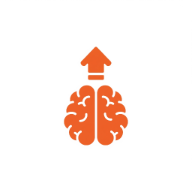Boost Your Brainpower: Simple Strategies for Enhanced Focus and Memory
Welcome to Brain Boost, your go-to source for practical tips and insights to unlock your cognitive potential! In today's fast-paced world, we're constantly bombarded with information, making it challenging to stay focused and retain what we learn. But the good news is, you don't need to be a genius to sharpen your mind. Simple, everyday strategies can significantly enhance your focus and memory. Let's dive in!
1. Fuel Your Brain the Right Way:
Just like any other organ, your brain needs the right fuel to function optimally. What you eat directly impacts your cognitive abilities.
- Embrace Brain-Boosting Foods: Incorporate foods rich in antioxidants, healthy fats, and essential vitamins. Think of things like:
- Fatty Fish: Salmon, mackerel, and trout are packed with Omega-3 fatty acids, crucial for brain health.
- Berries: Blueberries, strawberries, and raspberries are loaded with antioxidants that protect brain cells.
- Nuts and Seeds: Almonds, walnuts, and pumpkin seeds provide healthy fats, vitamin E, and zinc, all beneficial for cognitive function.
- Turmeric: This spice contains curcumin, a compound with anti-inflammatory and antioxidant properties that may improve memory and attention. (Consider mentioning local availability and use in traditional Pakistani cuisine if relevant to a future post).
- Green Leafy Vegetables: Spinach, kale, and broccoli are rich in vitamins and minerals that support brain health.
- Stay Hydrated: Even mild dehydration can impair concentration and memory. Keep a water bottle handy and sip throughout the day. Especially in the hot climate of Multan, staying hydrated is crucial!
- Limit Processed Foods and Sugary Drinks: These can lead to energy crashes and negatively impact cognitive function over time.
2. Prioritize Quality Sleep:
While you sleep, your brain is hard at work consolidating memories and clearing out toxins. Skimping on sleep can have a significant impact on your focus, learning, and overall cognitive performance.
- Aim for 7-9 Hours of Sleep: Most adults need this amount for optimal brain function.
- Establish a Regular Sleep Schedule: Going to bed and waking up around the same time each day, even on weekends, helps regulate your body's natural sleep-wake cycle.
- Create a Relaxing Bedtime Routine: Wind down before bed with activities like reading, taking a warm bath, or listening to calming music. Avoid
screen time (phones, tablets, laptops) at least an hour before sleep, as the blue light can interfere with melatonin production.
3. Embrace the Power of Movement:
Physical activity isn't just good for your body; it's also fantastic for your brain! Exercise increases blood flow to the brain, delivering oxygen and nutrients that support cognitive function.
- Find Activities You Enjoy: Whether it's walking, jogging, cycling, swimming, or even dancing, find something you like and make it a regular part of your routine.
- Aim for at Least 30 Minutes of Moderate-Intensity Exercise Most Days of the Week.
Even short bursts of activity can be beneficial. Consider a brisk walk in one of Multan's green spaces.
4. Train Your Brain with Mental Exercises:
Just like your body, your brain benefits from regular workouts. Engaging in mentally stimulating activities can help improve memory, attention, and problem-solving skills.
- Puzzles and Games: Sudoku, crosswords, jigsaw puzzles, and brain-training apps can challenge your cognitive abilities.
- Learn Something New: Taking up a new hobby, learning a language, or studying a new subject can create new neural connections in your brain.
- Practice Mindfulness and Meditation: These techniques can improve focus, reduce stress, and enhance cognitive control. Even a few minutes of daily meditation can make a difference.
- Read Regularly: Reading exposes you to new ideas, expands your vocabulary, and strengthens cognitive connections. Explore the rich literary traditions of the Punjab region!
5. Organize and Prioritize:
A cluttered mind can lead to decreased focus and difficulty remembering things. Taking steps to organize your tasks and information can free up mental space.
- Use To-Do Lists: Writing down your tasks helps you prioritize and stay on track.
- Break Down Large Tasks: Smaller, manageable steps can make overwhelming tasks feel less daunting.
- Create a System for Organizing Information: Whether it's digital folders or physical files, having a system helps you find what you need quickly.
Boost Your Brain, Boost Your Life!



0 Comments